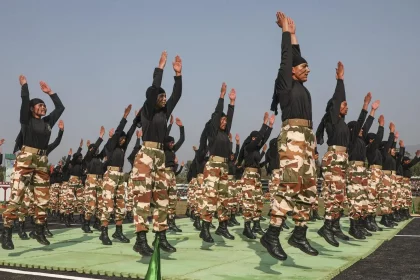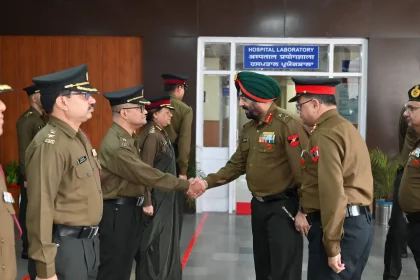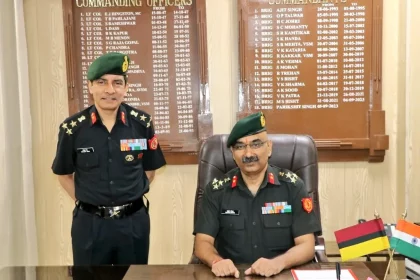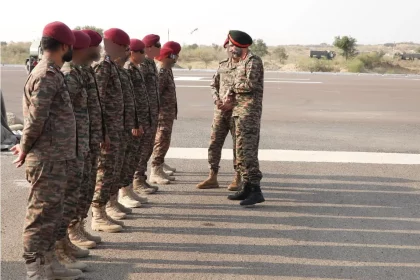ITBP to Establish 10 All-Women Border Posts Along India-China LAC Under Forwardisation Drive
First-of-its-kind deployment marks a historic leap in gender-inclusive border security and high-altitude frontline operations along the LAC.
After Operational Success, HAMMER Air-to-Ground Weapon to Be Manufactured in India Under BEL–Safran Joint Venture
BEL–Safran Joint Venture Marks Major Leap Toward Indigenous Precision Weapons and a Globally Competitive Defence Manufacturing Ecosystem.
Army Sports Institute Secures 100% Medal Win at World Boxing Cup 2025
Army Sports Institute Achieves Historic Clean Sweep with 9 Podium Finishes.
Lt Gen Manjinder Singh Reviews Security, Logistics & Combat Readiness at Bathinda Military Station
Lt Gen Singh Calls for Vigilance and Professional Excellence in Multi-Domain Conflict Era.
Brigadier Prafull Mohan Assumes Command of Military Hospital Dehradun
AFMC-trained Clinical Pharmacology Expert Takes Charge to Lead MH Dehradun into its Next Phase of Medical Excellence.
Lt Gen HS Vandra Reviews Desert Warfare Training of Russell’s Vipers Assault Team at Mahajan Ranges
Sharpening Combat Readiness in Extreme Desert Conditions.






